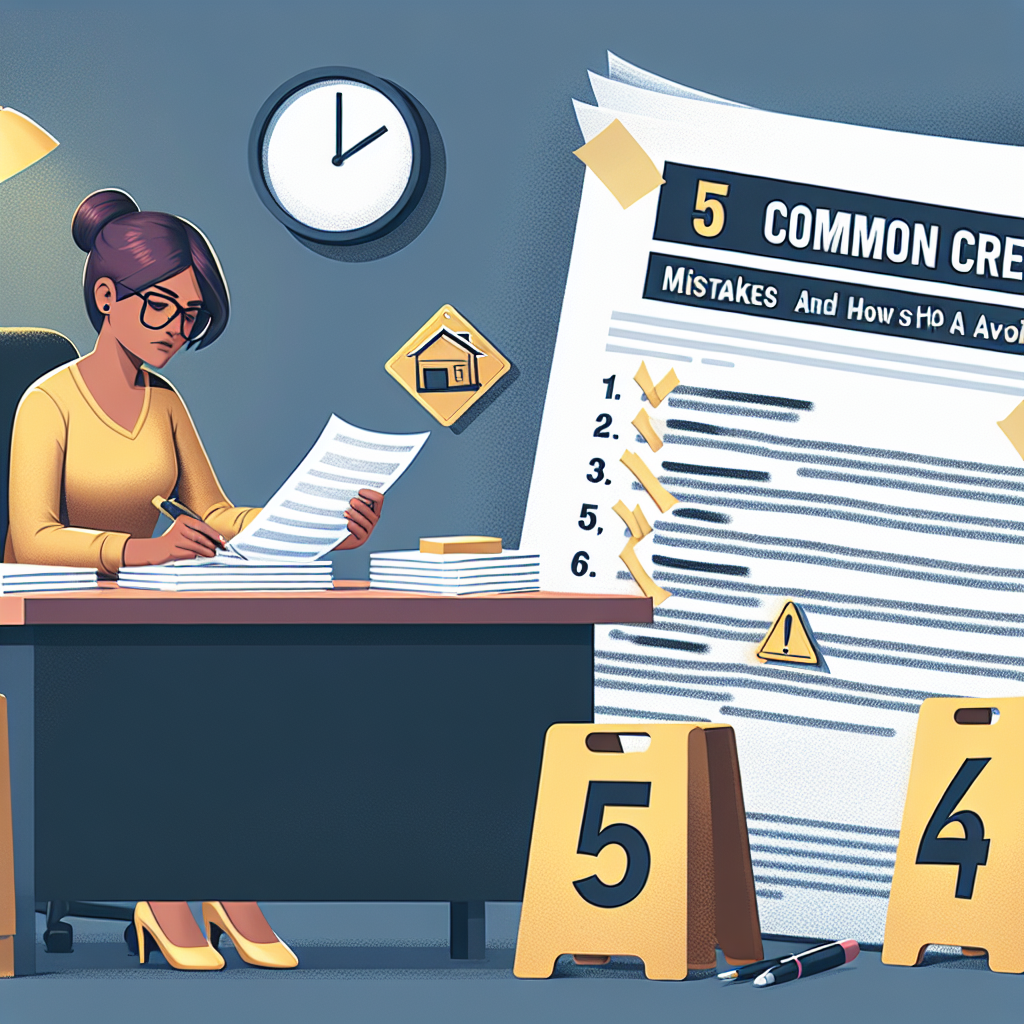Maintaining a good credit score is essential for financial health, but credit repair can often be a complex and confusing process. Many individuals make essential mistakes when trying to improve their credit ratings, potentially hindering their progress. In this article, we will discuss five common credit repair mistakes and how to avoid them, ensuring your journey toward better credit is smooth and fruitful.
1. Ignoring Your Credit Report
Understanding the Importance of Your Credit Report
Your credit report is the foundation of your credit score. It contains crucial information about your credit history, including payment history, debt levels, and accounts in good standing. Neglecting to review your credit report can lead to missed opportunities and costly errors.
Avoiding This Mistake
Make it a habit to check your credit report at least once a year from each of the three major credit bureaus (Experian, TransUnion, and Equifax). Look for inaccuracies or outdated information, as these can negatively impact your score. Dispute any errors promptly to ensure your credit report reflects your true financial history.
2. Relying Solely on Credit Repair Companies
Understanding Credit Repair Services
While credit repair companies can offer valuable services, relying entirely on them can lead to disappointment and additional fees. Many people may think that hiring a company is the only way to improve their credit.
Avoiding This Mistake
Educate yourself about the credit repair process. There are many tools and resources available online to help you understand what actions you can take to improve your credit. If you choose to work with a credit repair company, research their reputation and ensure they are legitimate and transparent about their services.
3. Missing Payments
The Impact of Late Payments on Your Credit Score
Payment history makes up 35% of your credit score, so missing payments can significantly impact your score. Even a single late payment can cause your credit rating to drop dramatically.
Avoiding This Mistake
Set up automatic payments or reminders for your bills to ensure you never miss a payment. Additionally, consider using budgeting tools to track your expenses and prioritize your financial obligations. Establishing a payment routine will help you stay on top of your obligations and improve your credit over time.
4. Closing Old Accounts
The Benefits of Keeping Old Accounts Open
Closing old credit accounts can hurt your credit score by impacting your credit history length and reducing your available credit, which can increase your credit utilization ratio (the amount of credit you’re using compared to your total credit limit).
Avoiding This Mistake
Keep old accounts open, especially if they have a good payment history. Use them occasionally to maintain activity, but be careful to keep your balances low. This practice will help lengthen your credit history and improve your overall credit score.
5. Accumulating New Debt While Repairing Credit
The Dangers of Incurring New Debt
Many people mistakenly believe that applying for new credit will improve their credit score. In reality, accumulating new debt while trying to repair your credit can lead to more financial troubles and further damage your score.
Avoiding This Mistake
Focus on paying down existing debts before taking on new ones. Create a debt repayment plan, prioritize high-interest debts first, and consider using the snowball or avalanche method for structured repayment. It’s also crucial to keep your credit utilization ratio below 30% to maintain a healthier score.
Conclusion
Improving your credit score is a vital part of achieving financial stability. By avoiding these five common credit repair mistakes—ignoring your credit report, relying solely on credit repair companies, missing payments, closing old accounts, and accumulating new debt—you can create a more successful path towards better credit health. Educate yourself, stay organized, and be proactive in your approach, and watch your credit score rise in no time!

